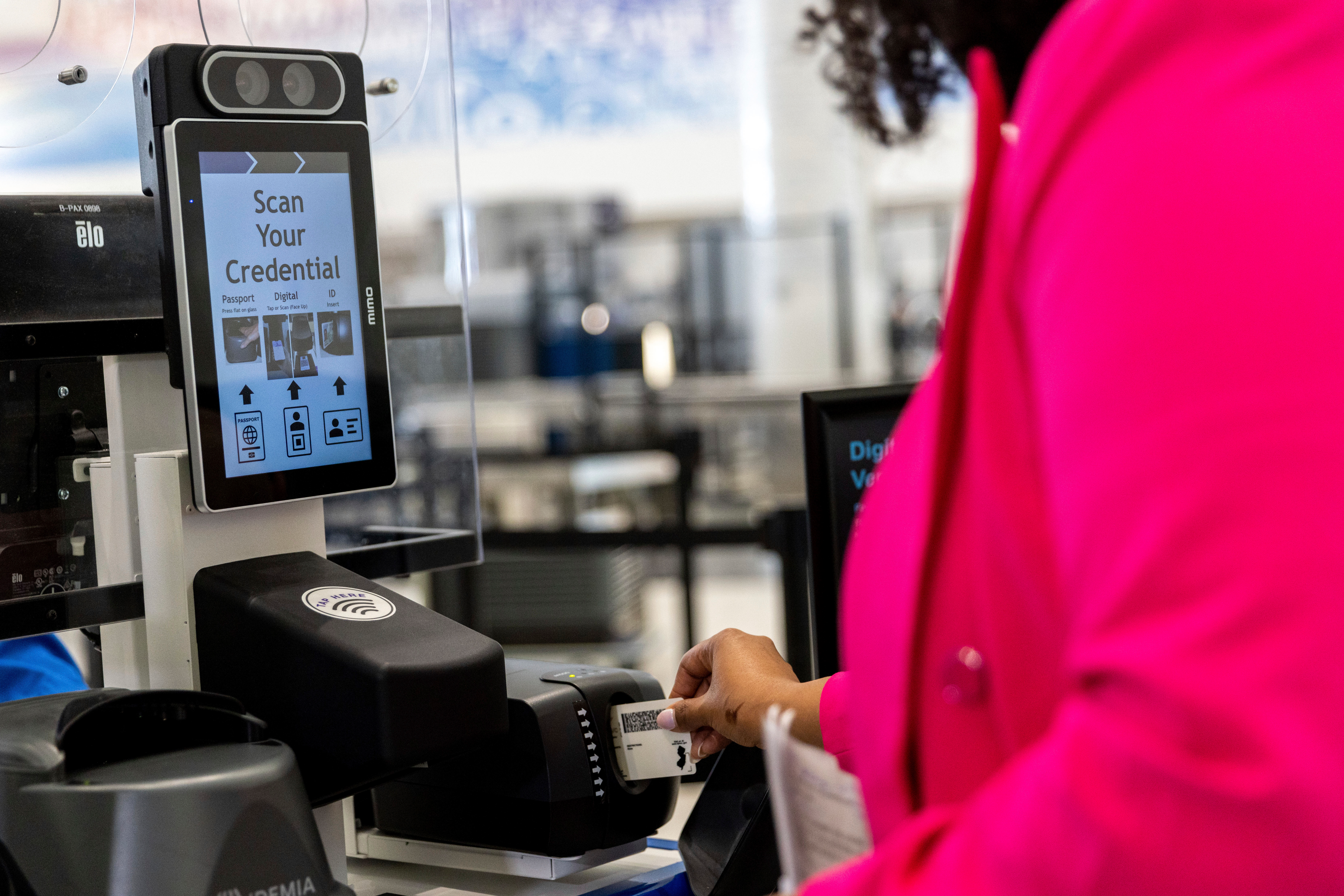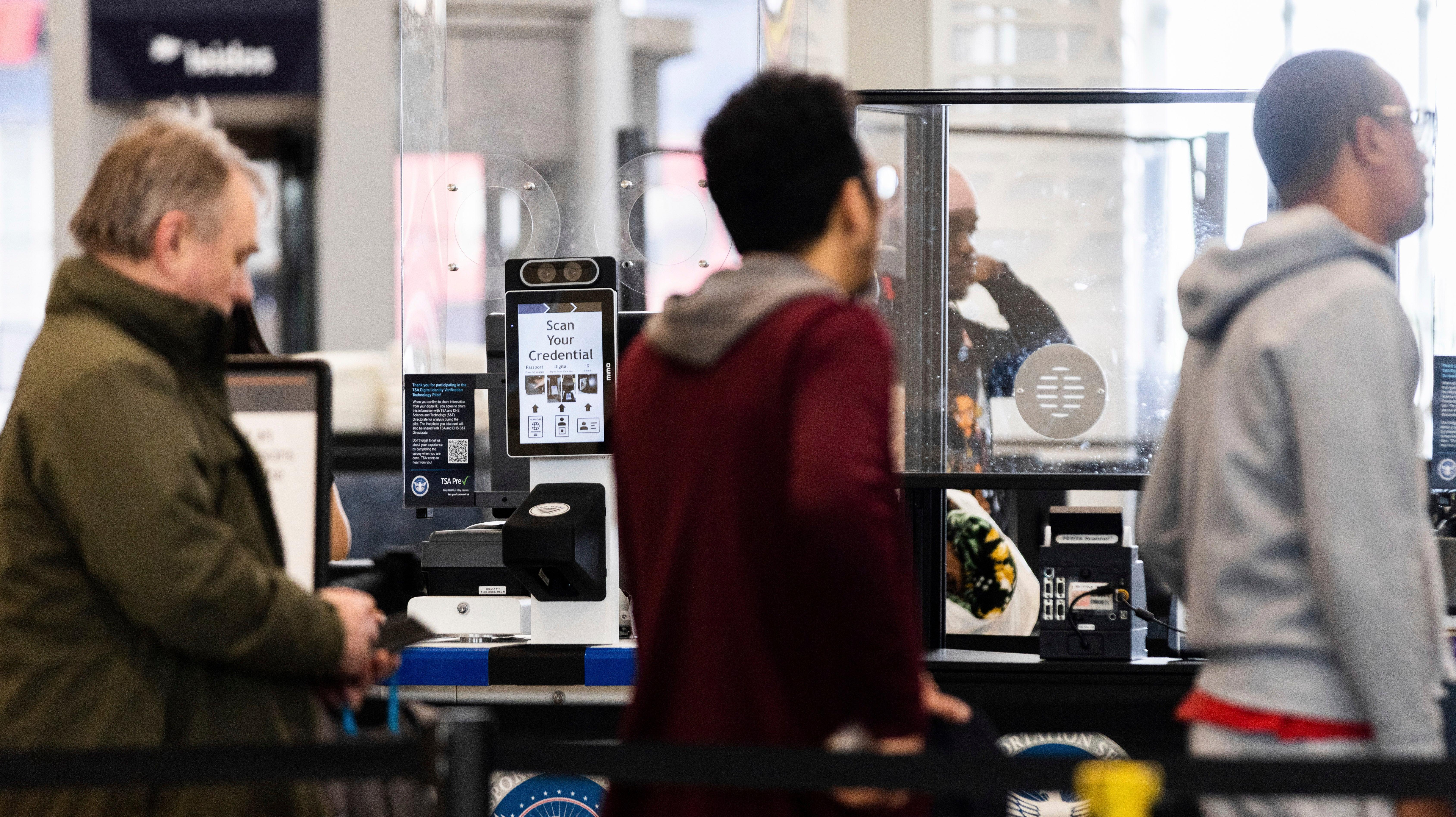TSA Testing Facial Recognition Tech At 16 Airports
Several U.S. Senators stated that the TSA program poses "a risk to civil liberties and privacy rights."
The Transportation Security Administration (TSA) is trialing facial recognition technology at security checkpoints within over a dozen airports across the United States. According to the Association Press, the agency has stated that it aims to streamline its procedures and improve airport security. Despite being voluntary and not storing biometric data, the test program has raised questions about civil liberties and privacy going forward.
Going through a security checkpoint using facial recognition technology is relatively straightforward. Passengers press their passport photo against a card reader or insert their driver's license into a card reader slot instead of handing their identification to a TSA officer. Then, passengers look into a camera mounted on a screen to compare their image to the ID photo. The screening process still relies on a TSA officer, and the software doesn't make the final decision.

The TSA has launched the test program at 16 airports: Baltimore/Washington, Reagan National, Hartsfield–Jackson Atlanta, Dallas/Fort Worth, Denver, Detroit, Las Vegas, Miami, Orlando, Phoenix, Salt Lake City, San Jose, and Gulfport-Biloxi and Jackson in Mississippi. Not every checkpoint at the participating facilities is equipped with facial recognition technology. Passengers can also opt out of the program.
Five U.S. Senators sent a letter to the TSA in February warning that "increasing biometric surveillance of Americans by the government represents a risk to civil liberties and privacy rights." The legislators noted through first-hand observations that it's not clear to passengers that the program is voluntary.
The TSA states that the data is deleted after 24 hours. With 2.8 million people passing through TSA checkpoints daily, the agency could quickly amass a sizeable facial recognition database. The senators' letter also mentioned that a potential TSA database could be misused by the government and be an attractive target for cyberattacks.
